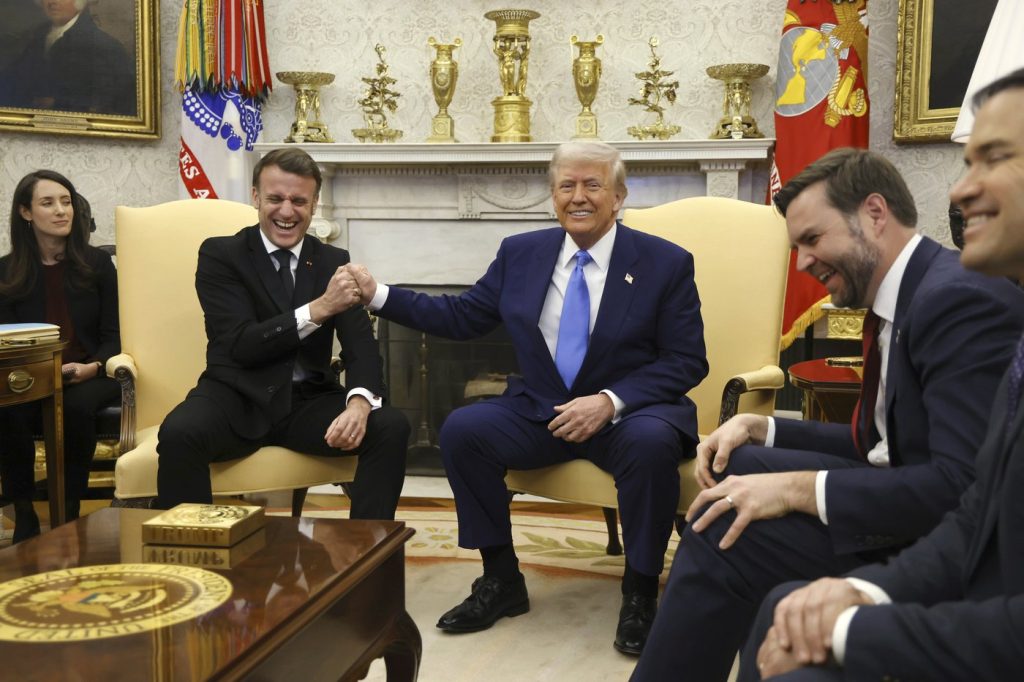PARIS — French President Emmanuel Macron has re-emerged as a key figure in global diplomacy, actively engaging with U.S. President Donald Trump to improve relations. Alongside British Prime Minister Keir Starmer, Macron is advocating for a peace plan for Ukraine, while simultaneously pushing for enhanced European defense capabilities. This diplomatic initiative represents a significant shift in Macron's focus after a political crisis in France left him appearing weaker just six months prior.
In recent months, Macron has taken a leading role in supporting Ukraine amidst ongoing conflict with Russia and has consistently communicated with Trump several times each week. He positions himself as a pivotal leader within the European Union, particularly as the only nuclear power in the bloc, emphasizing the need for a stronger European defense infrastructure.
Macron, who has been vocal about fostering a more sovereign Europe since his election in 2017, previously criticized NATO for what he called its “brain death.” He has long sought to establish a common defense policy in Europe, advocating for increased military cooperation among member states. EU leaders, in response to shifting U.S. policies and the threat posed by Russia, have recently committed to bolstering their defenses with significant financial investments.
In a noteworthy announcement, Macron proposed extending France’s nuclear deterrent to its European partners. This concept is rooted in the legacy of General Charles de Gaulle, who sought to maintain France's independence from U.S. influence and bolster its standing as a global power through an independent nuclear arsenal. This proposal has received support from countries like Poland and the Baltic nations.
Macron’s diplomatic approach is gaining traction among key European players. Starmer, who has been pursuing a closer defense relationship with Europe following years of post-Brexit tensions, is collaborating with Macron to develop a robust diplomatic strategy to support Ukraine. Their efforts include drafting a peace plan focused on the potential deployment of European troops to enforce a peaceful resolution.
In Germany, newly elected conservative leader Friedrich Merz has expressed a desire to enhance Europe’s strength and work towards greater independence from the United States. Shortly after his election, he met with Macron for dinner in Paris, hinting at a shared vision for a stronger European defense framework.
However, Macron's assertive stance has drawn criticism from Russia, which accused him of indulging in "demonstrative militarism" to divert attention from domestic challenges facing France. Russia has dismissed Macron’s nuclear deterrent proposal as confrontational and indicative of France’s ambitions to dominate Europe’s nuclear strategy. In response, Macron has labeled Russian President Vladimir Putin as "an imperialist."
Despite internal political challenges following a tumultuous parliamentary situation in France, Macron remains focused on foreign policy, leveraging substantial constitutional powers granted to the presidency in matters related to European affairs and defense. His administration’s focus on global diplomacy continues to attract critique from opposition leaders, who caution against a singular decision-making process on critical issues. Nonetheless, Macron has demonstrated a clear intent to maintain his roles on the international stage through his mandate, which extends until 2027.










